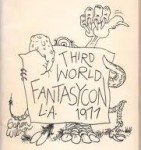You wrote a story and submitted it. Good for you! Pat on the back! It takes courage to not only write but to submit! But, your story wasn’t chosen? That makes me sad, especially after all that effort. So, how do you get your story through the first reading also known as the slush pile? It’s no great mystery. I’ve been a slush pile reader and have judged the Imaginative Fiction Writers Association (IFWA) short story contest and I’m here to share some of the common writing mistakes made by beginning writers.
Actions speak louder than words
There is the saying that actions speak louder than words. For the writer the saying should be reworded to: a character’s actions and reactions, based on his value system, are more revealing than a mere listing of movements and setting. Feelings, actions and reactions, what’s worth fighting for, our successes and failures in that fight and how they affect us – those are the things which move your reader and create your story.
Damn, I hate lectures …
Information dumps are bad any time – back story, setting, telling me what the character is thinking. When I hear the “professor’ lecturing me on what it’s like in space when I want to know how the character will solve a problem, I’m gone ……. and please, stay away from omniscient musings on the human condition!
The sleep inducing setting
Starting a story with a list of items the character sees isn’t exciting. Not even in real life do we note all the details in a room when we enter it. But we do notice things which affect how we feel or cause us to react like a dead body on the floor or the missing captain and the view screen showing the planet’s surface growing larger.
Setting not only sets the time and place for your story but more importantly is used to stimulate the senses; to evoke a feeling for the situation and to provide a context in which your character will react. Yes, some novels start with awesome descriptions of setting. So what makes that work? Setting is used as a character – it evokes a feeling. It’s no mistake that in Twilight, for example, the climate is cold, rainy and generally depressing. Similar, is it not, to how Belle feels about herself?
Writing in first person
Many a good idea was killed by this Point of View. Writing in first person doesn’t mean it’s a free license to explore your grey cells to produce copious ponderings. Writing in first person is difficult because there is only one point of view through which to reveal a world, create drama and to incorporate a story line which is interesting. It can be done. The trick is not to tell, but to show the person actively assessing and responding to his situation. Through his eyes and actions, he must reveal information about the people he interacts with, his surroundings and how he feels. First person can be a great way to get deeply into someone’s psyche, the trick is not to get bogged down in the thinking process. All the rules for a good story arc still apply.
Stories need to be dynamic
Whether they’re dynamic emotionally or action oriented, I don’t care. Have some tension, carry it through to the climax and ending. Actions need reaction. Reactions produce more actions. Show, don’t tell. Don’t list events, or actions, or use empty words like “pondered “which evoke nothing except that the writer didn’t really know how the character felt or how he should react. A story needs a plot and increasing tension with a climax. Writing a descriptive scene isn’t a story.
Proof reading and feedback
Truly, most of us cannot be a good judge of what we write, certainly not in the beginning of our careers. The act of writing is a solitary event insofar as we need to write our story. After that, it’s a collaborative process requiring feedback and revisions. Your manuscript is easily rejected because of poor grammar, spelling and punctuation, clunky dialogue or extensive monologues. Plot problems or character concerns such as inconsistency or believability are things proofreaders can catch.
Keep on writing!
Cheers!

